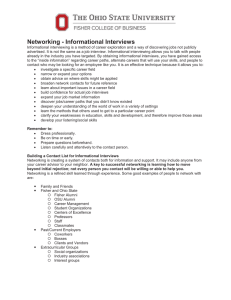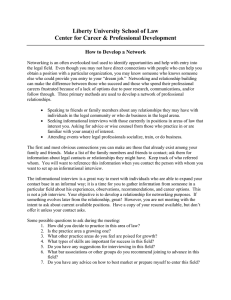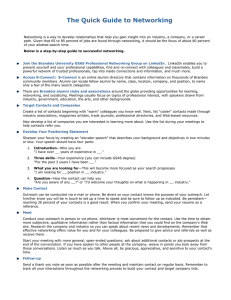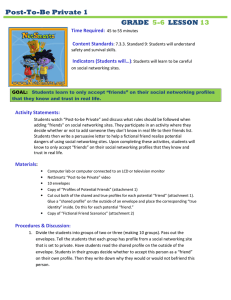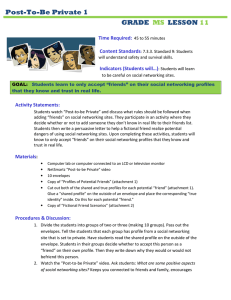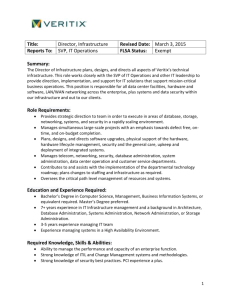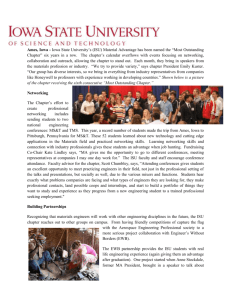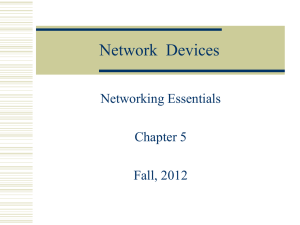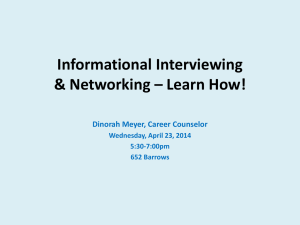Building & Sustaining Professional Networks
advertisement
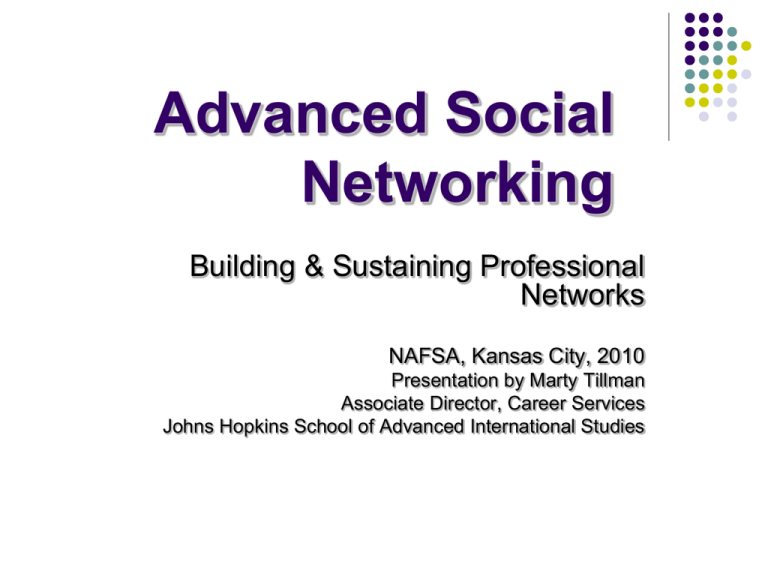
Advanced Social Networking Building & Sustaining Professional Networks NAFSA, Kansas City, 2010 Presentation by Marty Tillman Associate Director, Career Services Johns Hopkins School of Advanced International Studies What is Networking? A dynamic process of developing professional contacts and building relationships for purpose of obtaining field or sector-specific career advice, and job-related information. …What does it mean to you? Objectives Sharpen understanding of how social networking adds value in job search or career transition Build confidence for widening professional networks Review process of managing a social network online Value-added of Social Networking Interactive tool to widen your professional network Resource to obtain background information about institutions & organizations, hiring trends, and tips on application processes Assist in assessing fit of job with your career goals Other? Set Priorities Consistently set aside time to complete relevant tasks Conduct sector research Identify “prospects” & initiate outreach Practice & adapt informational interview skills Set up system to track progress & outcomes of outreach Be Organized to be Successful Define your professional objectives Identify principal skill sets, values & interests- self assessment is key Map out existing networks & identify prospects – circles of relationships Develop system to track outreach & networking outcomes – be pro-active, not passive Linked In Most widely used professional online network People with more than twenty connections are thirtyfour times more likely to be approached with job opportunity than people with less than five Career profiles are global resource to analyze and mine professional data Effective Use of Linked In Create full, creative and honest profile Use active and illustrative keywords Actively communicate within groups- NAFSA, undergrad/grad schools, other interest groups Post recommendations Use “answers” & ask questions Set up local informational interviews Who Posts Profiles? Currently employed, unemployed, those making transitions, recruiters Current students building a network-little experience Professionals making career transition – 5+ yrs experience Campus alumni with considerable experience in field/sector/region Analyzing Profiles When did they graduate? How many jobs after graduation ? When was “take-off period”-when employment exceeded 3-5 years with same company or organization? Did they switch or sustain work in same sector? Are they actively using LI? Do other NAFSANs know this person? Taking the Next Step Cluster contacts in same institution or organization Google names, research their function/focus/expertise If local: message for informational interview If not: write focused brief messages with targeted question Maintain Momentum Be purposeful & persistent Seek out new opportunities to interact with professionals and alumni Inform existing network of positive progress – be engaged Regularly update profile – your networks knows when you do… Keep moving forward -do not be discouraged!
